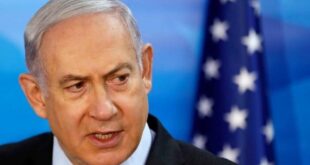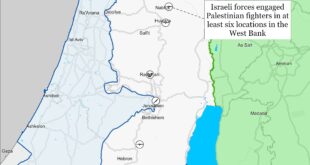As Turkish Foreign Minister Hakan Fidan is set to meet in Baghdad with Iraqi leaders, disrupted oil flows, water and cooperation against the outlawed Kurdistan Workers Party are expected to top the agenda.
Iraq and Turkey failed to agree on the resumption of oil exports via the southern Mediterranean port of Ceyhan as Turkish Foreign Minister Hakan Fidan makes his first trip to Baghdad since assuming the post.
News of the deadlock followed talks in Ankara Monday between Iraq’s Oil Minister Hayan Abdel-Ghani and his Turkish counterpart, Alparslan Bayraktar.
Fidan arrived in Baghdad on Tuesday and held talks with his Iraqi counterpart Fuad Hussein. He is expected to meet Wednesday with Iraqi Prime Minister Muhammed Shia al-Sudani, President Abul Latif Rashid and Parliament Speaker Mohammed al-Halbusi as well as leaders of the Turkmen community. He is due to head to Erbil the following day and meet with the Kurdistan Regional Government’s Prime Minister Masrour Barzani and President Nechirvan Barzani. Oil, water and cooperation against the outlawed Kurdistan Workers Party (PKK) are expected to top the agenda.
Ankara halted the flow on March 25 after the International Chamber of Commerce (ICC) ruled in favor of Iraq in an arbitration case lodged by Baghdad on the grounds that Turkey facilitated the “illegal” export of oil by the KRG between 2014 and 2018.
Unnamed Iraqi officials cited by Reuters said Turkey had justified the continued closure of the pipeline on the grounds that it was not in physical order yet to accommodate the renewed flow and that storage tanks in the port of Ceyhan needed inspection for any damages resulting from the twin earthquakes that shook southern Turkey in February.
It is widely acknowledged that the real reason for Turkey’s reluctance to reopen the line is Baghdad’s refusal to waive the $1.5 billion fine from the ICC and to drop a second arbitration case covering KRG sales between 2018 and 2022.
Sources familiar with the negotiations who spoke on condition they not be identified said that Iraq’s top ask was more water from the Euphrates and Tigris rivers, which originate in Turkey.
Water sharing has been a long-running thorn in relations between Turkey and its southern neighbors Iraq and Syria. Both blame Turkey’s construction of a host of dams since the 1970s for their increasingly acute water shortages. Turkey, which also suffers from drought, ripostes that they fail to properly manage their respective supplies.
The oil pipeline carries up to 450,00 barrels of crude per day, the bulk from Iraqi Kurdish fields. For more than a month now the federal government has redirected its share of the oil — around 80,000 to 100,000 barrels per day originating in Kirkuk — to refineries in Salahaddin that lie to the south. As a result, the federal government is not affected financially by the dispute. It’s the KRG that is the worst hit, losing around $700 million per month as a result of the pause in exports.
To make matters worse, Baghdad won’t disburse the $1 billion allocated to the KRG under its new budget, giving it only $400 million instead. Baghdad is demanding that Erbil hand over all tax, utilities and customs revenues before releasing its full share of the budget.
Regional officials familiar with the deliberations say Iran, which exerts strong influence over the Sudani government, is among the reasons that Baghdad is not agreeing to Turkey’s terms for resuming oil exports. Iran is seeking to squeeze the KRG, which hosts Iranian Kurdish guerilla groups, saying the latter should be disarmed immediately or face further attacks. At the same time, it is seeking to unravel Erbil’s strategic relations with Ankara that date back to the early 1990s, when the US-led coalition operated a no-fly zone over Iraqi Kurdistan from the Incirlik air base in southern Turkey. Those ties have since deepened into a strategic military and economic alliance, making Turkey the KRG’s top trading partner and its top security partner alongside the United States.
As a result, Turkey has deployed thousands of troops across the KRG, notionally to fight the PKK. For the Iraqi Kurds they serve as a buffer against potential encroachment by Iran.
Baghdad has long sought their withdrawal, with such calls growing louder each time Iraqi civilians, mostly Kurds, die in Turkish airstrikes. Iraq is particularly irritated by the presence of several thousand Turkish troops in Bashiqa near Mosul that is under the federal government’s control and it would not be surprising if they were pushing for their departure as part of the oil talks. Turkish forces in Bashiqa have come under attack from Iran-backed Shiite militias, most recently in February.
For their part, KRG officials will lobby Fidan to get Turkey to resume the flow of oil regardless whether it strikes a deal with Baghdad. Revenues from the oil sales were used to pay public sector salaries that total roughly $600 million per month. Payments are lagging by two months because of the lack of funds. In 2013 Turkey signed a 50-year energy deal with Erbil that set the stage for Kurdish oil sales through a purpose-built pipeline running to Ceyhan. The closure, some Iraqi officials contend, violates that deal.
Indeed, should Turkey persist in its stance, Iran’s game plan may actually work. A growing number of Iraqi Kurds are beginning to question Ankara’s motives, with some advocating exporting their oil via different routes, including through the Iraqi port of Basra, to reduce dependency on Turkey.
The pipeline closure will undoubtedly loom over Fidan’s trip, which is meant to lay the ground for an official visit by Turkish President Recep Tayyip Erdogan to reciprocate Sudani’s first trip to Ankara in March.
Alongside water, Turkey holds several other important cards. Around 70% of Iraqi custom revenues comes from imports via the Ibrahim Khalil border gate with Turkey. Moreover, the agreement to export Kirkuk oil will expire in July 2026, allowing Turkey to seek more favorable terms.
Whether any of this will sway Baghdad remains an open question and the consensus in Erbil is that it is Tehran that will ultimately decide.
 Eurasia Press & News
Eurasia Press & News




